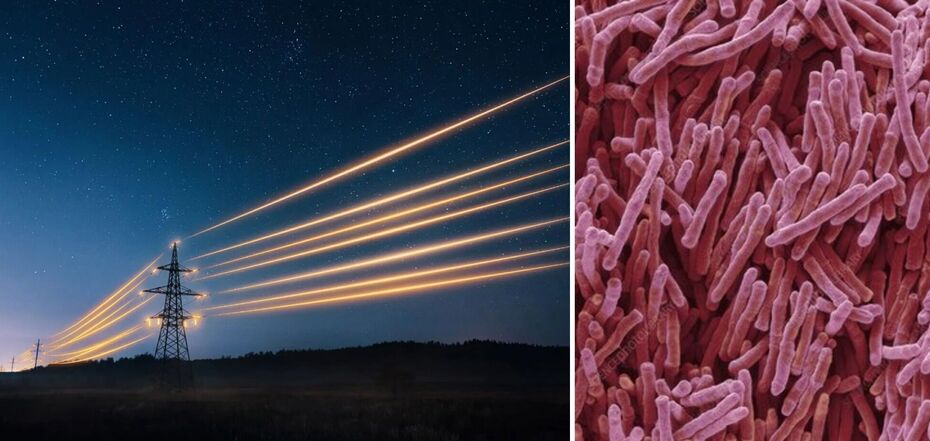Life
Scientists have learned how to generate electricity from the air. Literally!
Scientists have discovered an enzyme that allows bacteria to turn hydrogen into electricity. They believe that this discovery can be used to generate absolutely clean energy from the air. Such a source could be used to power small electric portable devices.
LiveScience tells about the results of the study, published in the journal Nature. The discovery was made when scientists examined the bacteria Mycobacterium smegmatis, which are related to those that cause tuberculosis and leprosy.
The enzyme discovered was named Huc. It is used by bacteria to obtain energy from atmospheric hydrogen, which allows the bacterium to survive in extreme, nutrient-poor environments.
A microbiologist at Monash University in Australia, Rhys Grinter, who was the lead author of the study, suggested that energy derived from the Huc enzyme could power devices such as biometric sensors, environmental monitors, digital clocks, calculators, laptop computers or even cars.
Scientists also found that depending on the concentration of hydrogen, Huc can produce more or less electric current.
"That means you can use it in fuel cells to power more complex devices," Grinter explained.
Scientists discovered that Huc has an active center containing charged nickel and iron ions. Once hydrogen molecules (consisting of two protons and two electrons) enter the active center, they are trapped between the nickel and iron ions and deprived of their electrons.
The enzyme then sends the electrons further downstream to generate a current.
"If we fix Huc on the electrode, electrons can enter the electrical circuit from the surface of the enzyme and generate current," the scientists are convinced.
Scientists' experiments also showed that the enzyme is amenable to long-term storage and does not lose its properties even after being heated to 80 degrees Celsius. They also found that the Huc enzyme can consume hydrogen in concentrations as low as 0.00005% of the hydrogen in the air we breathe.
Thus, the scientists believe, this enzyme is an ideal candidate for the role of an energy source in organic batteries.
"Huc can extract energy from hydrogen in the air, which is virtually limitless," Grinter said.
The bacteria Mycobacterium smegmatis have long been known to mankind and are used in many experiments. They are commonly found in soils around the world.
Scientists have also long known that the bacterium is capable of extracting energy from the air by recycling hydrogen, but exactly how it did this was previously a mystery.
Because of this property, Mycobacterium smegmatis is able to survive even in Antarctic soils, volcano craters, and at the bottom of the ocean.
Previously OBOZREVATEL also told about how scientists have developed technology that allows you to write messages with your mind.
Subscribe to the channels OBOZREVATEL in Telegram and Viber to keep up with the latest developments.



























